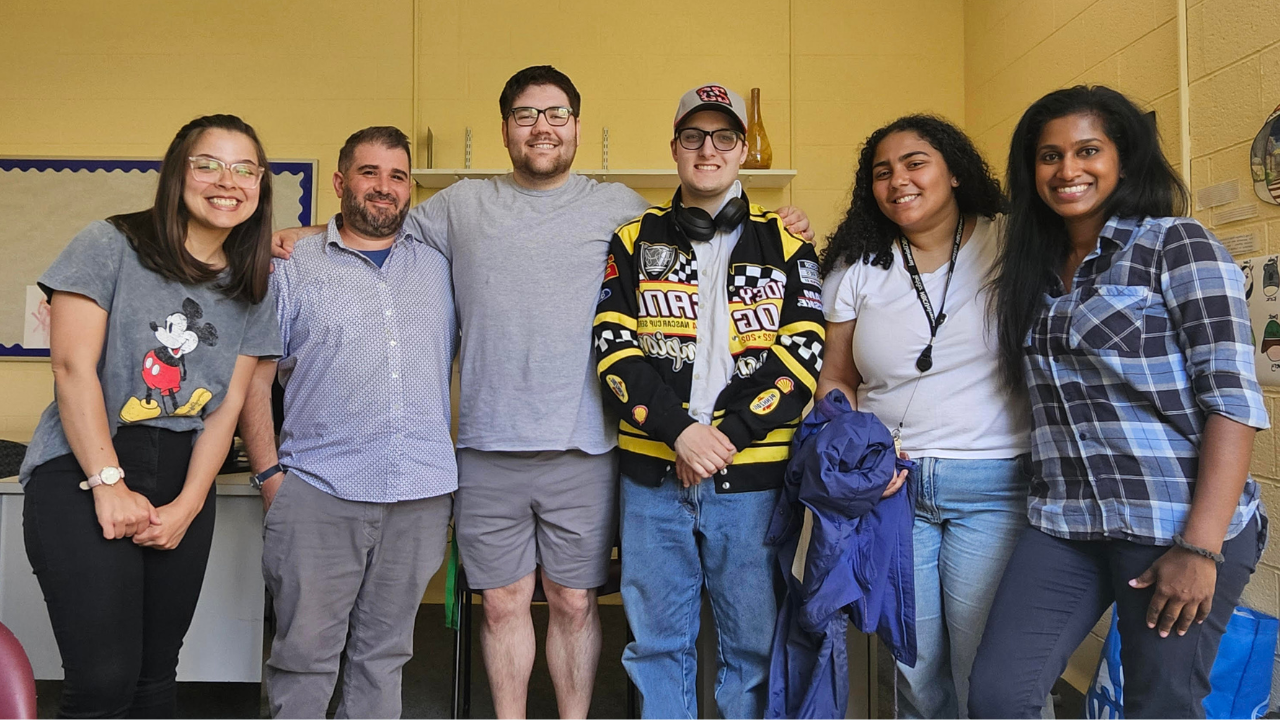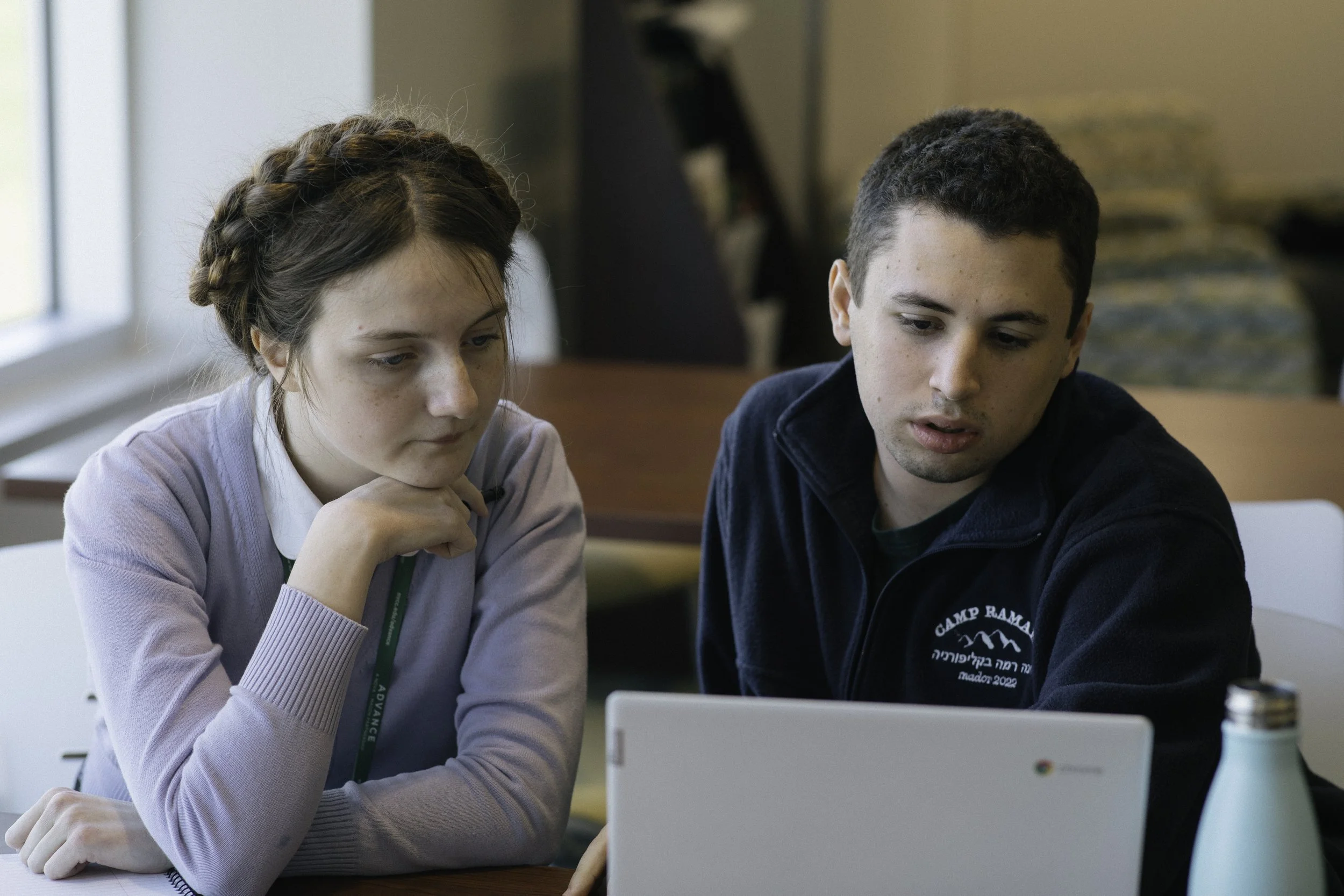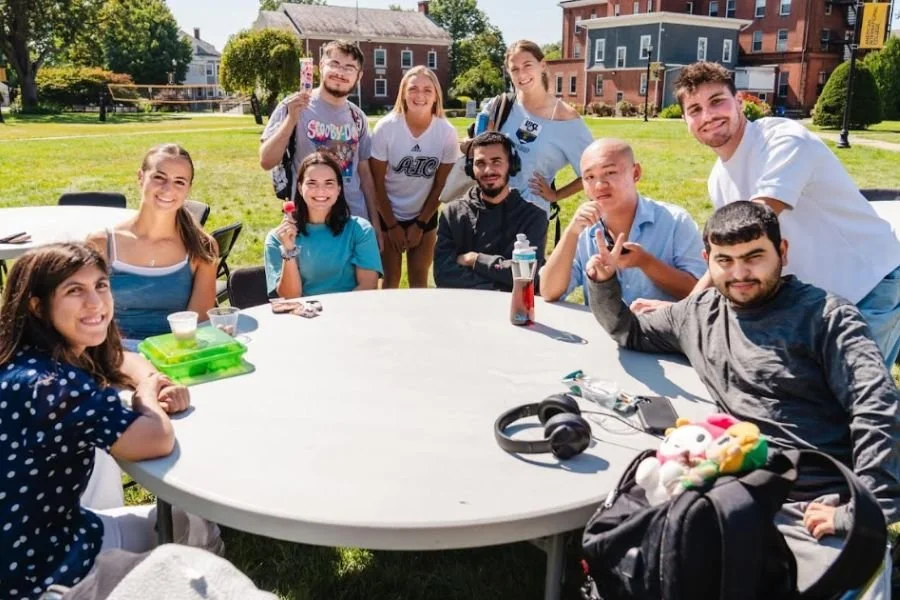College STEPS BLOG
College Steps provides informative content each month focused on higher education for students, families, educators, and anyone who may benefit from learning more about the transition to college for students with learning and social challenges. You’ll find insights, action steps, supporting research, and resources.
Join our monthly roundtable to gain valuable insights, connect with professionals, and more.
High School vs. College: What Really Changes – and How to Prepare
February 2026 Edition
Author: Dr. Aaron Rakow, PhD.
The transition from high school to college is often described as exciting and liberating—and it is. But it can also be disorienting, especially for students who are used to a high level of structure and support. What many families don’t realize is that college success depends far less on intelligence or motivation than on a set of internal skills students are suddenly expected to have. Understanding what really changes between high school and college can make the difference between feeling overwhelmed and stepping into this next chapter with confidence.
From External Structure to Internal Skills
High school is designed around external structure. Teachers provide reminders about homework and tests, notice when students fall behind, and intervene quickly. Parents are often looped in, helping manage schedules and problem-solve challenges as they arise. Classes are smaller, expectations are clearer, and support is built into the system. College, by contrast, assumes independence. Classes are larger. Reminders are rare. Exams and papers carry higher stakes. Professors expect students to manage their own time, study independently, and reach out only if they need help. For students who have relied on external guidance, this sudden shift can feel less like freedom and more like being dropped into the deep end.
Responsibility Shifts—Quickly
One of the biggest changes students experience is where responsibility lives. In high school, adults monitor progress and step in when something isn’t working. In college, students are expected to notice problems themselves, communicate with professors, navigate accommodations, and meet deadlines without prompting.
Self-advocacy becomes essential. Knowing how to ask for help, clarify expectations, or address concerns isn’t just helpful—it’s foundational. These are life skills, not just academic ones, and many students haven’t had much practice developing them before college.
Support Exists—but Students Must Find It
College campuses are rich with resources: tutoring centers, academic advising, counseling services, disability support offices, and countless student organizations. The key difference? No one ensures students use them. There is no single adult tracking a student’s overall well-being. Students who learn early how to identify and access support tend to feel more confident, connected, and resilient. Those who don’t may struggle silently, assuming they’re “supposed” to handle everything on their own.
Additional Challenges for Some Students
For students with ADHD, learning differences, anxiety, autism spectrum traits, or social challenges, the transition can be even more complex. Executive functioning demands increase dramatically. Social dynamics shift. Unstructured time expands. Without intentional support, these challenges can impact both academic performance and emotional well-being. This doesn’t mean these students can’t thrive—it means they often need targeted preparation and ongoing support to do so.
Preparing for a Successful Transition
The good news? These skills can be learned. Students benefit enormously from practicing time management, organization, communication, and self-advocacy before college begins. Gradually increasing independence at home, normalizing help-seeking, and talking openly about challenges helps reduce shame and build confidence. Programs that combine academic coaching, mentorship, and social support can be especially effective, providing students with both practical tools and a sense of connection during a major life transition.
The Bottom Line
College success isn’t just about grades. It’s about independence, confidence, relationships, and belonging. When students understand what’s changing—and are supported in building the skills to meet those changes—they don’t just survive college. They thrive.
College Steps helps students bridge the gap between high school and college by building the skills, confidence, and connections that lead to long-term success—academically, socially, and emotionally.
Building Strong Social Relationships in College
January 2026 Edition
Author: Dr. Aaron Rakow, PhD.
College Steps empowers students with learning and social differences by providing individualized post-secondary support. In partnership with high schools, colleges, and families, we focus on peer-to-peer mentoring that fosters confidence, independence, and long-term success.
Beginning college is an exciting milestone, but the social transition can be challenging. New environments, unfamiliar expectations, and increased independence often require students to build friendships, manage relationships, and engage in campus life without the structure they may have relied on previously. For students with learning differences, ADHD, autism, or social-communication challenges, these changes can feel particularly overwhelming.
Navigating Social Life in College
Strong social connections are a critical component of college success. Feeling connected supports confidence, emotional well-being, and engagement both inside and outside the classroom. Students may struggle with initiating conversations, interpreting social cues, balancing academic and social demands, or navigating conflict. These challenges are common—and with the right support, they can be addressed through practice, guidance, and reflection.
How College Steps Supports Social Development
College Steps provides individualized, on-campus support to help students build social confidence and develop meaningful relationships. Through peer-to-peer mentoring and coordinated guidance, students practice communication skills in real-world settings, navigate social situations as they arise, and build connections at their own pace. This approach promotes independence, self-advocacy, and a stronger sense of belonging on campus.
Students are supported as they learn to:
Initiate and maintain conversations
Navigate friendships and relationships
Participate in campus activities and social events
Understand social expectations and boundaries
Build confidence in group settings
Reflect on social experiences and problem-solve challenges
Social relationships play an essential role in confidence, independence, and personal growth during college. These same skills—communication, collaboration, and problem-solving—are foundational to professional success.
By strengthening social connections in college, students are better prepared for meaningful employment and long-term fulfillment. College Steps partners with students and families every step of the way—empowering students to navigate college with clarity, confidence, and connection.
Why Disclosure Matters — and How to Navigate It
December 2025 Edition
Author: Dr. Aaron Rakow, PhD.
Transitioning to college is exciting—but it can also feel overwhelming, especially for students with learning differences, ADHD, autism, or executive-functioning challenges. Between new routines, higher academic expectations, and managing independence, many students don’t know where to start.
One of the most powerful tools? College Accessibility Services.
The catch: these supports aren’t automatic. Students must take action—starting with disclosure.
What Accessibility Services Can Offer
Every college has an Accessibility Services (or Disability Support Services) office designed to help students overcome academic barriers and thrive. Approved accommodations can include:
Extended time on exams
Quiet or separate testing environments
Note-taking support
Priority registration
Assistive technology tools
Flexibility with deadlines (when appropriate)
Sensory-friendly or reduced-distraction spaces
Understanding Disclosure
“Disclosure” means sharing documentation of a disability with the Accessibility Services office. It is:
Private — Professors only see accommodations, not diagnoses.
Voluntary — Students decide if and when to disclose.
Empowering — Unlocks life-changing academic support.
Disclosing early helps students avoid falling behind, reduce stress, and build independence—giving them the tools to fully participate in college life.
How College Steps Supports Students
College Steps provides personalized guidance for students navigating learning and social challenges, including support in accessing accommodations confidently.
Through peer mentors and on-campus coordinators, students learn to:
Communicate with accessibility offices
Email professors and request accommodations
Self-advocate respectfully and effectively
Stay organized and follow through with approved supports
We help students develop real-world skills that extend far beyond college.
Disclosing a Disability is a Strength
Disclosing a disability isn’t something to fear—it’s a powerful step toward confidence and success. Students who know how to advocate for themselves don’t just survive college—they thrive.
Extra Support for Students and Parents
College Steps offers guidance through every stage—from disclosure and accommodations to social skills, executive functioning, and everyday college life.
Empower your student today. Help them step into college with clarity, confidence, and community.
The Role of Mentorship in College Success
November 2025 Edition
Author: Aaron Rakow, PhD.
Why Mentors Make a Difference
Families and professors play vital roles in a student’s growth, but mentors offer something uniquely powerful — a peer perspective grounded in shared experience. Peer mentors bridge the gap between academic support and real-life understanding, helping students navigate both classroom and campus life with confidence.
Unlike professors or advisors, mentors can relate to the day-to-day challenges students face — from organizing assignments to managing stress, friendships, and self-care. This shared understanding builds trust, confidence, and momentum toward success.
How Mentors Help
Support in the Classroom
Mentors may sit alongside students in one course per semester, modeling focus, note-taking, and participation. By demonstrating what engagement looks like in real time, mentors help students strengthen their own academic skills and independence. Learn more about academic coaching and executive functioning support.
Build Social Confidence
Beyond academics, mentors play an essential role in modeling positive social interactions. Through everyday activities — meals, clubs, study sessions, or casual campus conversations — mentors help students practice communication, develop friendships, and gain comfort in social spaces that can sometimes feel overwhelming.
Explore additional resources for student well-being and social connection.
Serve as Role Models
Mentors are peers who have “been there.” They share first-hand experience of what it means to balance independence with structure — helping mentees reach goals, solve problems, and connect with the natural supports that already exist on campus.
Discover how mentoring supports college readiness and self-advocacy through College Steps.
Research is clear
Studies consistently show that mentorship improves both academic and emotional outcomes for college students. According to research from The Chronicle of Higher Education and the Center for Evidence-Based Mentoring, students with consistent peer or faculty mentorship are more likely to:
Persist through academic challenges
Report stronger sense of belonging
Demonstrate improved executive functioning skills
Graduate on time
In short: mentorship builds confidence, community, and capability — all critical for thriving in college and beyond. You can read more about how our students are thriving on our Success Stories page or explore the range of Support Services we offer.
Making the Leap: Supporting Neurodiverse Students in College
October 2025 Edition
Author: Aaron Rakow, PhD.
Transitions are challenging for every student, but for those who are neurodiverse or have learning differences, the leap from high school to college can feel especially overwhelming. From managing new schedules and responsibilities to navigating a complex social world, students are suddenly asked to juggle skills that rely heavily on executive functioning—like prioritizing tasks, staying organized, and adapting to unfamiliar processes.
Research from CHADD shows that difficulties with executive functioning are one of the most common hurdles for students with ADHD and related learning differences. Without targeted strategies, these barriers can overshadow academic potential and dampen confidence.
That’s where College Steps comes in. Through mentorship and personalized guidance, we help students build the skills and confidence they need to thrive—academically, socially, and personally.
Our peer mentorship program provides one-on-one support with areas like:
Time management & organization (Learn more from Understood.org)
Self-advocacy in the classroom (Wrightslaw: College & Disabilities)
Social engagement & confidence-building (Social Thinking)
Navigating campus disability services (U.S. Department of Education: Rights for Students with Disabilities)
With the right support, every student can find their footing and develop into independent individuals. Our goal at College Steps is not only to help students succeed in the classroom but to empower them with lifelong skills that will serve them well beyond college. You can read more about how our students are thriving on our Success Stories page or explore the range of Support Services we offer.





